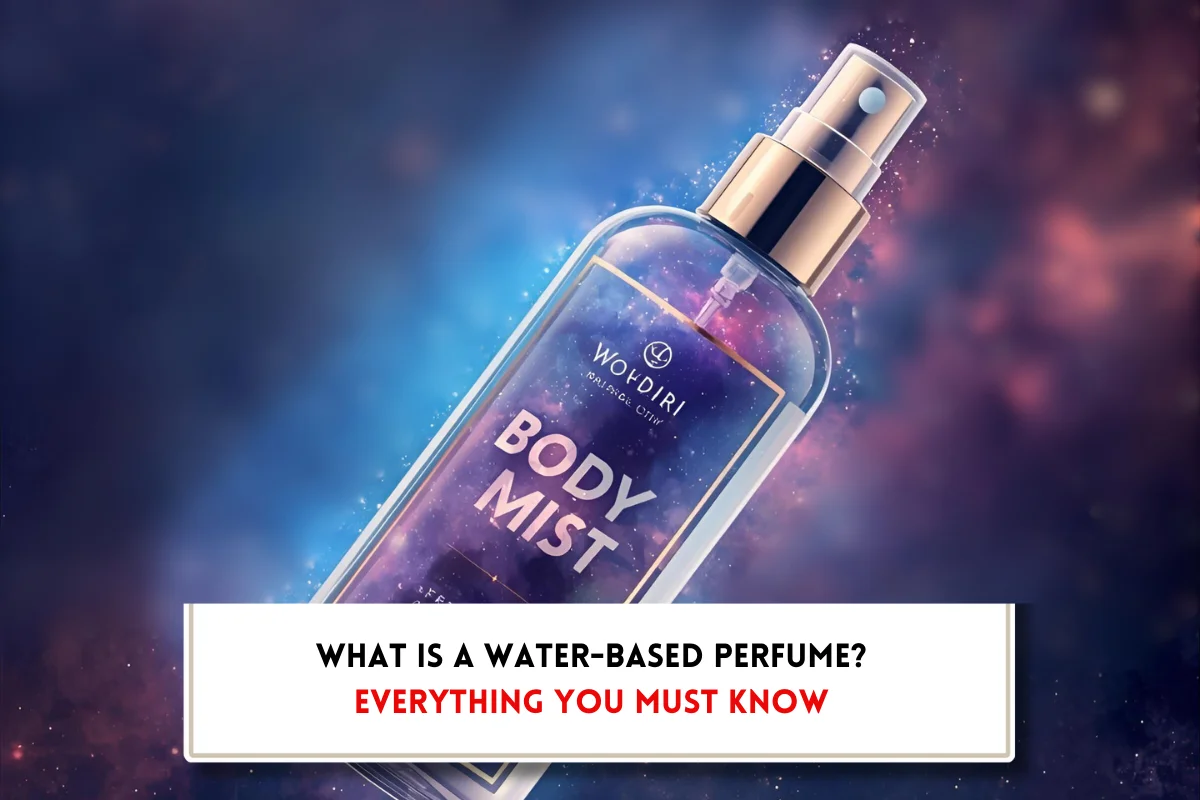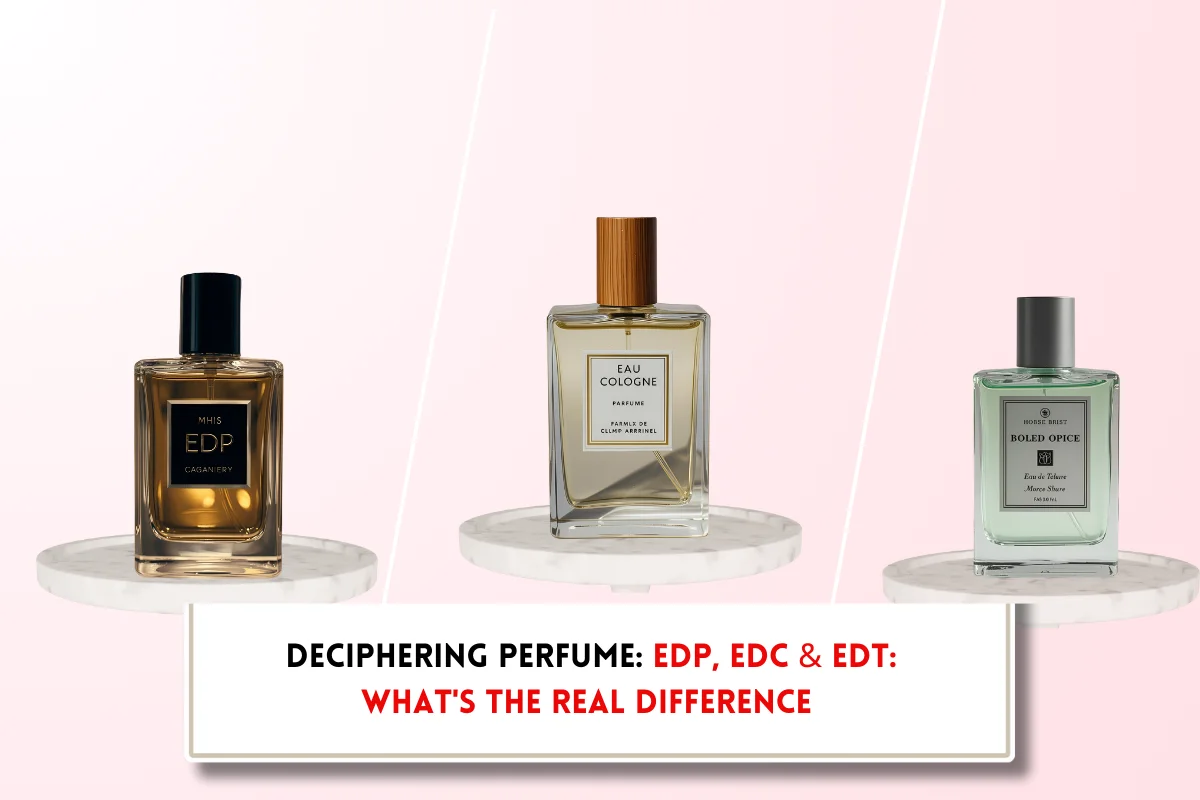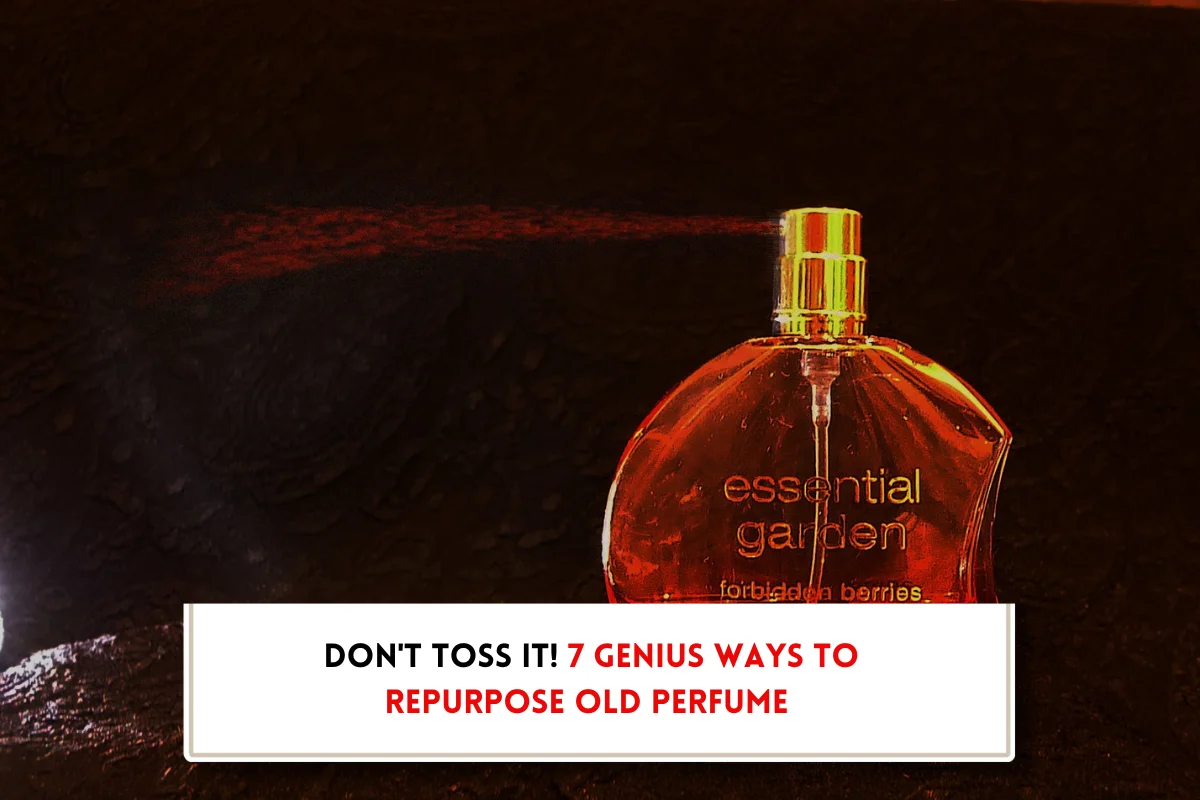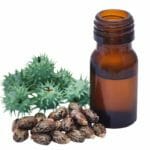Can you put perfume in a diffuser? Should you?
At BeautyCaters, our expert team independently curates every recommended product. Purchases through our links may earn us a commission. Explore our transparent selection process.
It’s tempting to think about filling your home with the luxurious scent of your favorite perfume, like a beautiful tuberose fragrance, using a diffuser. The idea of effortlessly dispersing that beloved aroma might seem like an ingenious shortcut to an inviting atmosphere. But before you pour your precious perfume into your diffuser, let’s explore: Can you put perfume in a diffuser, and how brilliant is this hack, really?

Can you put perfume in a diffuser?
No, generally, it is not recommended to put perfume directly into a diffuser designed for essential oils or aroma oils. While both perfume and diffuser oils are designed to create scent, their compositions are fundamentally different, and using perfume in a diffuser can lead to a host of issues.
Understanding perfume and diffusers
Composition of perfumes
Perfumes are complex mixtures of fragrant essential oils, solvents, and fixatives designed to deliver a long-lasting and pleasant scent. They are formulated specifically for application on the skin, not for diffusing into the air.
Also Read: How to open perfume bottle like a pro?
How diffusers work?
Diffusers have become a cornerstone of modern aromatherapy and home fragrance, transforming living spaces into fragrant sanctuaries. These ingenious devices are designed to disperse essential oils or fragrance oils into the air, effectively filling a room with captivating aromas. But how exactly do they achieve this fragrant transformation? The answer lies in a variety of fascinating technologies, each with its own unique approach to scent diffusion.
Let’s explore the primary types of diffusers and the clever mechanisms they employ:
- Ultrasonic Diffusers: Ultrasonic diffusers are by far the most common and widely used type today, cherished for their efficiency and ability to preserve the therapeutic qualities of essential oils.
- How they work? These diffusers utilize high-frequency ultrasonic vibrations (inaudible to humans) to create a fine mist. These vibrations create tiny waves on the surface of the water, breaking down the water and oil mixture into microscopic particles.
- Nebulizing Diffusers: Nebulizing diffusers are often considered the most powerful type, delivering the purest and most potent scent experience without the use of water or heat.
- How they work? These diffusers use an air pump and a specially designed glass nebulizer to atomize pure essential oil. This creates a vacuum that pulls the essential oil up the tube and disperses it into a super-fine mist of concentrated oil micro-particles. This mist is then released directly into the air.
- Heat Diffusers: Heat diffusers use varying levels of heat to gently warm essential oils, causing them to evaporate and release their aroma into the air.
- How they work? Essential oil (or sometimes a blend with a carrier oil) is placed in a small dish or well. A heat source, such as a light bulb, a ceramic heating element, or a small candle, gently warms the oil. As the oil heats up, it evaporates, and its aroma diffuses into the surrounding environment.
- Evaporative Diffusers: Evaporative diffusers are straightforward devices that use a fan to blow air across a saturated pad or filter.
- How they work? Essential oil is dropped onto an absorbent pad or wick. A small fan inside the diffuser blows air over this pad. As the air passes over the oil, it causes the oil to evaporate and disperse its scent into the room.
- Reed Diffusers: While not electronic, reed diffusers are a popular form of passive diffusion, offering continuous fragrance without power.
- How they work? A solution of fragrance oil (typically blended with a carrier oil) is poured into a bottle. Porous rattan reeds are inserted into the bottle, with one end submerged in the oil. Once the oil reaches the top of the reeds, it evaporates into the air, releasing the scent.
Why perfume and diffusers don’t mix?
Here’s a breakdown of why this seemingly clever idea isn’t the best practice:
Oil vs. Alcohol Base:
- Diffuser Oils (Essential Oils & Aroma Oils): These are typically water-soluble (especially for ultrasonic diffusers) or oil-based and designed to evaporate cleanly. Essential oils are concentrated plant extracts, while aroma oils are often blends of essential oils and synthetic fragrances, sometimes diluted in a carrier oil.
- Perfumes: The vast majority of perfumes are alcohol-based. Alcohol is a highly volatile solvent that helps to carry the fragrance molecules and evaporate quickly on the skin. When introduced into a diffuser, especially an ultrasonic one, the alcohol can cause problems.
Damage to the Diffuser:

- Corrosion and Clogging: The alcohol in perfume can corrode plastic and rubber components within your diffuser over time, leading to leaks or malfunction. Furthermore, perfumes often contain synthetic compounds, dyes, and fixatives that are not designed for atomization. These can build up and clog the diffuser’s internal mechanisms, particularly the ultrasonic plate, significantly reducing its lifespan and effectiveness.
- Residue Buildup: Unlike essential oils which are typically pure or diluted in specific carriers, perfumes can leave behind a sticky residue. This residue can be difficult to clean and can harbor bacteria or mold, leading to unpleasant odors even when you switch scents.
Ineffective Scent Diffusion:
- Weak or altered scent: Diffusers are calibrated to work with the specific viscosity and evaporation rates of essential or aroma oils. The alcohol base of perfume might cause it to evaporate too quickly or unevenly, resulting in a much weaker, inconsistent, or even altered scent throw compared to what you’d experience on your skin.
- Overpowering alcohol fumes: Initially, you might primarily smell the alcohol rather than the delicate nuances of your tuberose perfume, which can be irritating and unpleasant.
Health and Safety Concerns:
- Inhalation risks: Perfumes are formulated for topical application to the skin, not for prolonged inhalation through a diffuser. The synthetic ingredients, phthalates, and other chemicals commonly found in perfumes, when continuously atomized and inhaled, could potentially lead to respiratory irritation or other sensitivities in some individuals.
- Flammability: Given their alcohol content, perfumes are flammable. While the risk in a standard home diffuser might be low, it’s an unnecessary hazard to introduce.
Why people use perfume in diffusers?
The allure of using perfume in a diffuser is incredibly strong, tapping into several understandable desires. Let’s delve into the compelling reasons why people often consider this seemingly ingenious shortcut to a beautifully scented home, even if, as we’ve explored, it’s not the best practice.
- Unique and personal scents: Unlike many generic room sprays or even essential oil blends, perfumes are often highly personal and sophisticated. They are crafted with complex layers of top, middle, and base notes, creating a unique olfactory signature. People develop deep attachments to their favorite perfumes, associating them with memories, feelings, and personal identity. The desire to extend this cherished scent experience from their skin to their entire living environment is a powerful motivator.
- Luxury and exclusivity: High-end perfumes, like a premium tuberose fragrance, often symbolize luxury, elegance, and exclusivity. The idea of having such a refined aroma permeating one’s home elevates the ambiance beyond what standard air fresheners can offer. It’s about bringing a touch of opulence and a personalized, high-end experience into everyday living.
- Cost-effectiveness (Perceived): At first glance, it might seem more economical to use a few drops of an existing, beloved perfume rather than investing in dedicated home fragrance products or a wide array of essential oils. People might already own a substantial collection of perfumes and view them as an untapped resource for home scenting, unaware of the potential damage or ineffectiveness.
- Convenience and simplicity: The thought of a “one-stop shop” for fragrance is very appealing. Why buy separate products when your favorite perfume is right there? The perceived convenience of pouring a few drops into a diffuser and letting it do the work is a strong draw for those looking for an easy solution to refresh their space.
- Desire for consistent scent experience: If you love how your tuberose perfume makes you feel, you’d naturally want that feeling to extend to your home. People seek to create a cohesive sensory environment, where the scent of their personal space aligns with their personal style and preferred aromas.
Alternatives to using perfume in a diffuser

When it comes to filling your home with captivating scents, there are several excellent and purpose-built alternatives that outshine perfume in every way:
While the thought of using your signature perfume in a diffuser is tempting, it’s generally not recommended due to potential damage to your device and health concerns. Fortunately, there are fantastic, safer alternatives to beautifully scent your home:
- Essential Oils: The gold standard for diffusers. These natural, concentrated plant extracts are specifically designed for inhalation and come in a vast array of scents. Popular choices like calming lavender, invigorating lemon, or refreshing eucalyptus not only smell wonderful but can also offer therapeutic benefits. They are safe, effective, and won’t harm your diffuser.
- Diffuser-Specific Fragrance Oils: Many brands offer fragrance oils explicitly formulated for diffusers. These are created to work seamlessly with your device, providing a strong, consistent, and long-lasting aroma without the risks associated with perfumes. They often mimic popular perfume scents or create unique home fragrances.
- DIY Natural Scents: For a personal touch, craft your own natural blends. Simmer citrus peels (lemon, orange), herbs (rosemary, mint), and spices (cinnamon sticks, cloves) in water on the stove. This creates a lovely, natural aroma. While not ideal for ultrasonic diffusers, these can infuse your home with delightful, chemical-free fragrances, especially for heat-based diffusion methods.
FAQs
Can I use perfume oil in a diffuser?
It’s generally not recommended. While perfume oils are concentrated, they are formulated for skin application, not for diffusion in devices. Their composition can damage your diffuser over time, leading to clogs or malfunction. Stick to oils specifically designed for diffusers.
What type of oils are best for diffusers?
Essential oils and diffuser-specific fragrance oils are your best bet. Essential oils are natural plant extracts ideal for aromatherapy, while diffuser fragrance oils are formulated for effective and safe scent dispersal. Both are designed to work seamlessly with your device and are safe for inhalation.
How often should I clean my diffuser?
For optimal performance and longevity, aim to clean your diffuser after every use. If you use it less frequently, a thorough cleaning at least once a week is crucial to prevent oil buildup and ensure consistent misting.
Are there any scents that should not be used in a diffuser?
Yes. Avoid thick, resinous oils (like Myrrh or Sandalwood if not specifically labelled for diffusers) as they can easily clog and damage the internal mechanisms. Always ensure any oil you use is clearly labeled as safe and suitable for diffusers.
How can I make my diffuser scent last longer?
To prolong your diffuser’s scent, use high-quality, pure essential or fragrance oils. Regular and thorough cleaning prevents residue buildup that can hinder diffusion. Additionally, utilizing your diffuser’s timer function for intermittent diffusion (e.g., 30 minutes on, 60 minutes off) can make your oils last significantly longer.
Final word
While the allure of diffusing your favorite scent, like a sophisticated tuberose, is understandable, the answer is a clear no. Perfumes are simply not designed for this purpose and can damage your diffuser or lead to less-than-ideal scent experiences.
Instead, embrace the world of essential oils and diffuser-specific fragrance oils. These alternatives are not only safe and effective but also offer a vast array of beautiful aromas to perfectly scent your space. Make the smart choice for your diffuser and your home, ensuring every breath is filled with a delightful, safe, and long-lasting fragrance.










